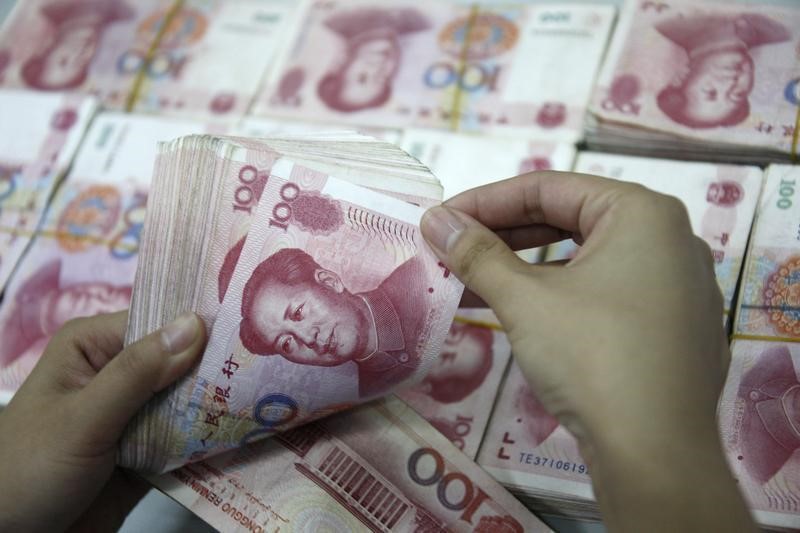Investing.com-- The People’s Bank of China still has space to loosen monetary policy further, with reductions in interest rates and reserve requirements possible in the third quarter, analysts told state-backed news outlet China Securities Journal on Tuesday.
While the central bank has consistently rolled out liquidity measures this year to support a sluggish economic recovery, it still retains enough space to further cut its benchmark interest rates and reserve requirement ratio (RRR) for local banks.
The PBOC had cut its medium-term lending facility (MLF) and its loan prime rate (LPR)- two benchmarks used to determine borrowing costs in the country- in June, while local banks had also begun trimming interest rates on yuan deposits.
While the chances of further reductions in the two benchmark rates are slim, with the PBOC keeping the MLF steady this week, a need to stabilize growth later in the year could attract more cuts, analysts told the CSJ.
Instead, the PBOC is more likely to cut the RRR- which is a mandate that sets the minimum level of reserves a bank must maintain in relation to its deposits. Reductions to the figure unlock more permanent stimulus for the economy as compared to the PBOC’s open market operations.
An RRR cut appears likely in the third quarter, and will be the PBOC’s first such reduction since March, when it had trimmed the ratio to stimulate a post-COVID economic recovery in the country.
But that recovery now appears to be running out of steam, with data on Monday showing that growth in China’s gross domestic product slowed substantially in the second quarter from the first.
Weak economic readings from the country have drummed up speculation over Beijing unlocking more stimulus for the economy, with PBOC officials recently affirming that they will take more measures to support growth.
But the PBOC disappointed some investors hoping for a further reduction in its MLF on Monday. The bank is now widely expected to keep its LPR steady later in the week.
Analysts also told the CSJ that changes in the U.S. Federal Reserve’s monetary policy- particularly a potential pause in the bank’s rate hike cycle- would have limited impact on China, beyond easing some depreciationary pressure on the yuan.
